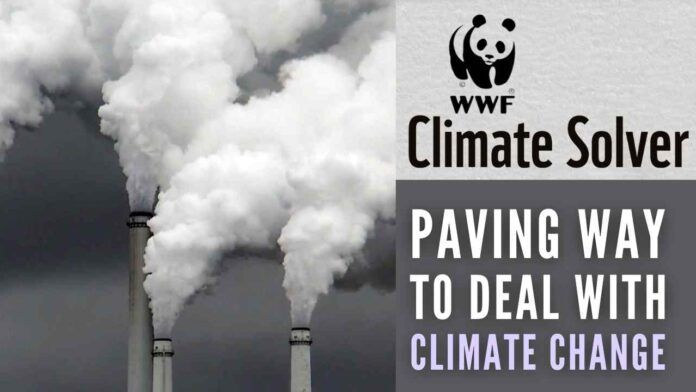
Indian ‘climate solvers’ leading the fight against climate change
Climate Change is the toughest challenge of recent times and the latest Intergovernmental Panel for Climate Change (IPCC) report has emphasized the urgent need for strong and sustained reductions in emissions to help address the climate crisis.
The World Wide Fund for Nature-India (WWF India) in a release said, “Climate solver initiative fosters such innovation-led solutions for mitigating global emissions while addressing some of the most pressing local environmental challenges pertaining to mobility, air pollution, energy efficiency, and natural resource degradation.”
Since its launch in 2012, the Climate Solver platform has awarded 30 innovative low-carbon technologies in India, amongst the 124 entrepreneurs recognized globally.
Innovative technologies for EV battery charging, solar drying and space heating, efficient storage to reduce horticulture waste, and thermal energy storage for cold chains are the four winning solutions that can potentially reduce 13 million tonnes of GHG emissions annually by 2030.
WWF India release has said, “Recognised and felicitated at the 9th Climate Solver India awards hosted virtually by WWF-India, the winners were selected by an eminent jury from more than 70 applicants across the country after the participants were screened for their unique technology and business model, strong potential in emission reduction and scale-up, as well as social and environmental co-benefits.”
During the late Tuesday event, Director General, International Solar Alliance, Dr. Ajay Mathur said, “The climate solver program is an outreach to those kinds of products which are otherwise, in a sense, out of the mainstream. Awarding such unique technologies helps to give them the recognition that they want, helps to bring in the kind of markets that are needed for them to become worldwide in their reach, and, of course, thereby helps in reducing the carbon emissions.”
Amongst the awardees, Log9 Materials Scientific Private Limited has developed a unique battery technology that allows rapid charging of electric 2-wheelers and 3-wheelers in about 15 and 30 minutes, respectively. With a life of more than 10 years, this technology eliminates the need for costly battery replacements. Also, features like faster acceleration and top speed make these batteries ideal for fleet operators and users in the urban environment. The global adoption of this innovation has the potential to reduce 4.6 million tonnes of GHG emissions by 2030.
SaptKrishi Scientific Private Limited was awarded for its innovative solution- Sabjikothi – a microclimate-based storage and transportation solution for fruits and vegetables. The patented technology is a portable, wheel-mountable, cost-effective solution that extends the shelf-life of fruits and vegetables for 3 to 30 days, thus preventing food wastage. The innovation is more than 80 percent energy-efficient in comparison to the conventional cold storage solutions and has the potential to reduce three million tonnes of GHG emissions by 2030.
PLUSS Advanced Technologies Private Limited has developed innovative phase change materials (PCMs) for cold chain applications. Their PCMs comprise inorganic salts that change their phase at a specific temperature. These PCMs increase the temperature retention ability of freezers/coolers by up to 16 hours during power outages and reduce energy consumption by 25 percent, with a potential to reduce 1.3 million tonnes of GHG emissions by 2030.
Neochlorus Energy Solutions Private Limited has developed an innovative decentralized solar dryer-cum-space heating system with thermal energy storage to efficiently dry agricultural products and provide space heating in the Himalayan region. The technology stores excess heat during solar hours and dissipates it during non-solar hours for a continuous drying process, and can be modified to provide space heating during the harsh winter seasons. The estimated GHG reduction by global adoption of this technology is likely to be 4 million tonnes by 2030.
Secretary-General & CEO, WWF India, Ravi Singh said: “The Climate Solver platform showcases innovative climate solutions emerging from the SME sector that has the potential to address issues of climate change while providing strong co-benefits in terms of local environmental improvements and enhancing livelihoods.”
[With Inputs from IANS]
PGurus is now on Telegram. Click here to join our channel and stay updated with all the latest news and views
For all the latest updates, download PGurus App.
- UP Special Task Force arrests Mahadev app India head, his associate from Lucknow - April 26, 2024
- CBI raids Sheikh Shahjahan’s relative in Sandeshkhali; seizes huge cache of arms, explosives - April 26, 2024
- Will ‘exit India’ if forced to break encryption: WhatsApp to Delhi High Court - April 26, 2024










